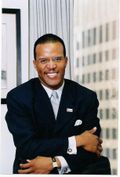Consumers need to be better informed
 Laying blame for the financial crisis that has helped push the global economy into recession is an exercise being played out daily in newspapers and broadcasts around the world.
Laying blame for the financial crisis that has helped push the global economy into recession is an exercise being played out daily in newspapers and broadcasts around the world.
There is one group of primary players, however, who have so far escaped the glare of serious scrutiny and analyses, yet they are likely major contributors to the current problem — consumers, whose spending accounts for more than 70% of economic activity in the United States and almost 59% in Canada.
Rather than "blame the victim" of the global crisis, a close look at consumers helps explain why many became victims in a much larger economic meltdown.
Consumers of financial products, particularly in the United States, contributed to the economy going off the rails.
And the sooner we realize this, the sooner we can act.
We have to face the fact that a lot of people made, and continue to make, poor financial decisions every day.
And, if you doubt the truth of this statement, consider the facts: Current per-capita debt load is at a record high, the rate of personal bankruptcies is rising, use of fringe financial services is rising and savings rates for retirement and children's post secondary education remain too low. The issue of consumer financial education is not unique to Canada or the United States.
All member countries of the Organization for Economic Co-Operation and Development (OECD) have acknowledged that the financial literacy of their citizens is a key contributing factor to prosperity and that more needs to be done.
Over the past five years, the United Kingdom, the United States, Australia and New Zealand have all been developing and implementing national strategies to improve the financial literacy of their peoples.
Indeed, U. S. President Barack Obama has agreed to continue to support the President's Advisory Council on Financial Literacy created by then-president George W. Bush in 2007.
The council's activities range from community town halls and listening sessions to congressional briefings and reports on the impact of financial illiteracy on the subprime mortgage crisis.
The council has also led to the creation of the U. S. Small Business Administration Office of Entrepreneurship Education, and to legislation tied to the Council's 15 non-partisan recommendations on federal financial literacy policy.
In Canada, key decision makers are starting to understand that financial literacy isn't just a matter of distributing brochures in the hope that they will be read.
Financial literacy entails developing skill sets people will use every day to make better decisions.
It is about creating financial services that are accessible particularly to those who cannot afford a financial advisor.
To be effective, initiatives must be co-ordinated nationally and delivered locally, which will require co-operation between all levels of government as well as the private and not-for-profit sectors.
Prime Minister Stephen Harper's government has taken some important steps in this direction.
In 2007, his government mandated that the Financial Consumer Agency of Canada begin addressing financial literacy matters. Funding was provided in the subsequent federal budgets.
However, in fiscal 2009, the Canadian government has the opportunity to grab hold of this issue as our major trading partners have done.
The commitment to form an independent, multi-sector task force to develop a national strategy on financial literacy is the first step in a process that could help Canadians make better financial decisions.
It could also help Canadians better weather the economic storms that will inevitably blow through the global economy from time to time.
— – John Hope Bryant is founder, chairman and CEO of Operation HOPE, Inc. and vice-chairman of the U. S. President Barack Obama's Advisory Committee on Financial Literacy.
Financial Post
-Peter Nares is founder and executive director of Social and Enterprise Development Innovations (SEDI) and an Ashoka Senior Fellow.
